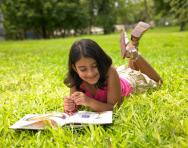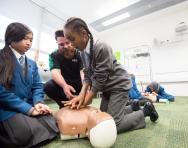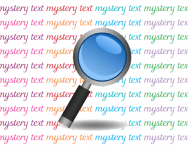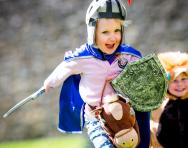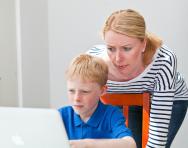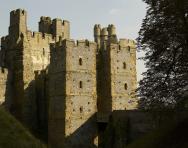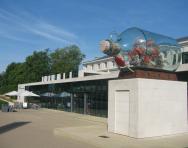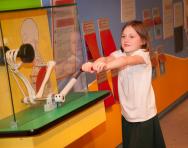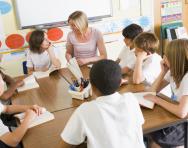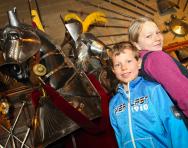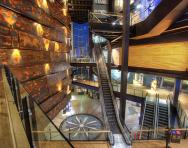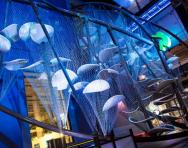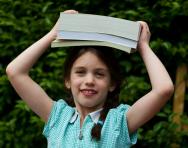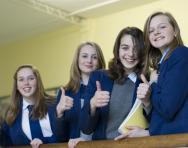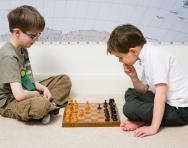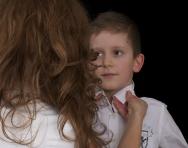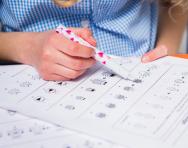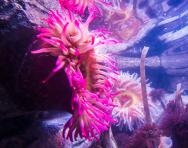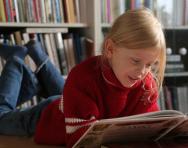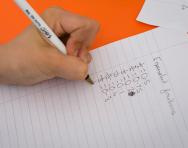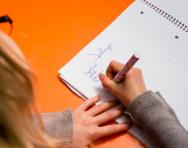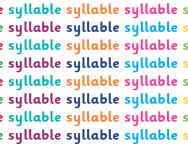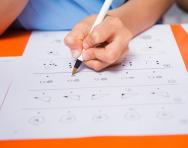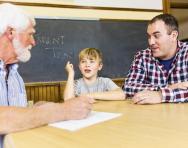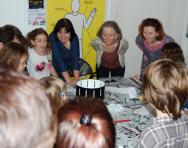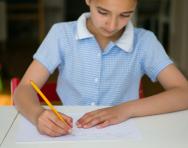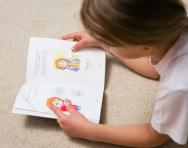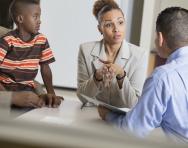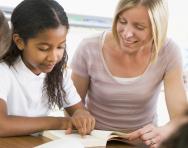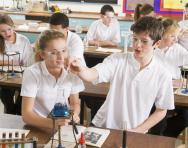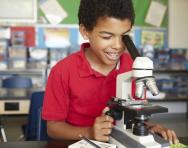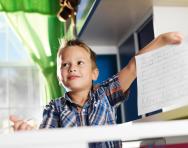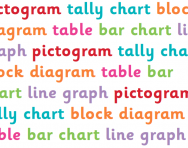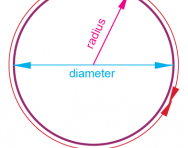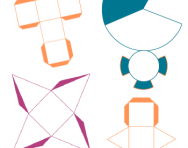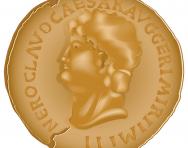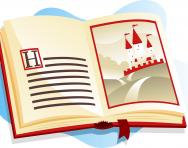Year 6 articles
Best maths story books for children
Introduce ratio, pie charts, probability and even simplifying fractions to children with these brilliant maths story books, picture-book presentations of mathematical concepts that primary-school children will love.
Essential first aid skills for your primary school child
Learning a few basic skills could help your child make a real difference in an emergency. St John Ambulance offers some advice on the first aid techniques that could turn them into a lifesaver.
What is mystery text?
Mystery text explained for parents, including examples of how children might work on crime stories in KS2 and suggestions of great mystery story books for children aged 8 to 12.
Museums reviewed by parents: Dover Castle
Travel back in time to meet medieval monarchs, wander through winding, eerie 13th century underground defences and explore the Secret Wartime Tunnels deep within Dover’s White Cliffs. A trip to Dover Castle offers an action-packed day out for the whole family and our parents-and-children testers loved every minute.
Is your child addicted to video games?
How do you know if your child’s passion for gaming is getting out of control? We explain how to spot the signs and beat the obsession.
Museums reviewed by parents: Arundel Castle
Pretend to be a knight for the day at one of Britain’s most historic castles. Arundel Castle boasts fairytale towers and rooms full of suits of armour, all set in acres of beautiful grounds and gardens with sweeping views over the stunning South Downs. Perfect for keeping curious kids busy exploring all day!
Museums reviewed by parents: National Maritime Museum
The world's largest maritime museum is packed to the gunwales with intriguing objects, fascinating galleries and hands-on exploration opportunities for children and families. Head to Royal Greenwich to find out more about seas, ships and sailing.
Museums reviewed by parents: Cutty Sark
Climb aboard the world's sole-surviving tea clipper for a voyage across the seas of time, experiencing the life of the 19th century crew. Our family testers loved all the hands-on experiences on offer on board, from interactive apps for your phone to swabbing the decks with miniature mops.
Museums reviewed by parents: Thackray Medical Museum
Explore past (and future!) medical treatments and procedures, get a glimpse of life in Victorian England, get hands-on with oversized body parts and find out how humans work, all at the Thackray Medical Museum in Leeds. Our family testers share the highlights for parents and children.
Sex and relationships education: what your child learns
Sex education teaching varies hugely from school to school. We explain what goes on in KS1 and KS2 SRE lessons and outline what has changed in sex and relationship education in primary school from September 2020.
Museums reviewed by parents: Warwick Castle
Take a trip back through the last eleven centuries to Warwick Castle, the site of a Saxon fortification, a wooden motte and bailey constructed in 1068 and a medieval stone castle. Restored and managed by the Merlin Entertainments group, the Castle uses multimedia experiences and costumed guides to bring history to life for visitors of all ages.
Museums reviewed by parents: Titanic Belfast
Titanic Belfast uses special effects, rides, reconstructions and interactive features to explore the Titanic story. We find out what the world's largest Titanic visitor attraction has to offer children and families.
Museums reviewed by parents: W5, Belfast
Planning a family day out? Our favourite museums make learning effortless and fun (for adults as well as children). For hands-on science for all ages head to the action-packed W5 in Belfast, one of the top family attractions in Northern Ireland where you are invited to touch, feel, smell and press everything in sight!
What is the equal preference system?
How do schools take your rankings into account when you apply for a place? We explain how equal preference works.
What is a grammar school?
What could a grammar school offer your child, and how does the application process work? We explain in our grammar school guide for primary-school parents.
10 ways to boost an able child's confidence
Being academically gifted can put a strain on your child’s emotional wellbeing, so how can you spot if they’re struggling and build their self-esteem?
Individual healthcare plans explained for parents
Individual healthcare plans are designed to keep children with medical conditions safe, well and involved at school. We explain how these important documents work.
Choosing an 11+ tutor
Every parent wants their child to have the best chance of 11+ success, and choosing the right tutor could be the key. We explain how to find the best person for your child.
Museums reviewed by parents: SEA LIFE Brighton
Watch sharks and turtles swim over your head, touch a starfish, come face-to-face with a ray and count terrapins as they walk through a rainforest... there's an under-sea world to discover at SEA LIFE Brighton, and the new Jurassic Seas exhibition takes you back to the age of the dinosaurs, too. We offer a review of what's on offer for parents and primary-school children.
Best kids' picture books about difficult subjects
From sharing and the democratic process to divorce and bereavement, these picture books all tackle tricky subjects with warmth, humour and understanding. Some are more suitable for younger children and others will be appreciated by tweens, but they all make difficult things easier to talk about and understand.
Teachers' tricks for KS2 maths
Is your child struggling with KS2 maths? Help them learn effectively and boost their number confidence in Year 3, 4, 5 and 6 with some useful calculation strategies and tips from primary teacher Phoebe Doyle.
Spelling in Year 5 and Year 6
Spelling is an important part of the Year 6 Grammar, punctuation and spelling test. Support your child's learning at the end of KS2 with Y5 and Y6 spelling worksheets and activities to help practise the spelling rules and patterns they're learning at school.
What is a syllable?
Syllables explained for parents, including details of how primary-school children are taught to identify syllables to help them with spelling and reading and understanding poetry.
What are Common Entrance exams?
Common Entrance exams are the route to an independent senior school education for many children. We explain what’s involved.
Should you take your child to parents’ evening?
Does bringing your child to a parent-teacher meeting give them valuable input or get in the way of frank conversation? We discuss the pros, cons and practicalities.
Museums reviewed by parents: The Cartoon Museum, London
From Hogarth and Ronald Searle to Manga to favourite characters like Dennis the Menace, there’s something for all comic lovers at the Cartoon Museum in London. We visited to find out what's on offer for primary-school children and parents.
Top tips for the 11+ English writing task
In some areas, a piece of extended writing is an important component of the 11+. Tutor Anita Clemens explains the secrets of success.
The science of school reading schemes
Following a reading scheme at school can transform children from non-readers to bookworms in a surprisingly short space of time, but how are they developed and tested to help your child progress?
How to handle a disappointing parents' evening
No one likes to hear bad news at a parent-teacher meeting, but knowing how to respond could help your child turn the issue around. By Lucy Dimbylow.
What is an independent school?
Considering sending your child to a private school? We give you the lowdown on the independent education sector.
Secondary school induction days: what to expect
The transition from primary to secondary school is a big step for your child, but summer term induction days can help them to prepare for their new milestone. We explain how they work and what you (and your child) should expect.
Primary education in England, Wales, Scotland and N Ireland
We may be a United Kingdom, but schooling varies between each of our four countries. Our guide gives you an overview of the differences in primary school education in England, Wales, Scotland and Northern Ireland.
How being bilingual affects your child’s education
One in five primary school children speaks a language other than English at home. We find out how this affects their learning, and what schools (and parents!) can do to help.
What is data handling?
From pictograms to line graphs, children learn a lot about collecting, organising and presenting data in primary school maths. We explain how data handling is taught in KS1 and KS2 and how you can help your child get to grips with basic statistics at home.
What are equilateral, scalene, isosceles and right-angled triangles?
Children learn to classify triangles as equilateral, isosceles, scalene or right-angled in KS2 geometry. Our guide for parents explains everything you need to know about triangles in primary school, from working out the area to calculating the internal angles.
What are the parts of a circle?
By the end of KS2 children are expected to be able to identify the parts of a circle (circumference, radius and diameter) and begin to use formulae to calculate a circle's perimeter and area. We explain what parents need to know about this aspect of primary-school geometry.
What are nets of shapes?
Can you make a 3D shape from its net? We explain how nets are used in the primary classroom to help children learn more about three-dimensional shapes and their properties in a hands-on, constructive way.
What are Roman numerals?
Children in KS2 are expected to read and write Roman numerals as part of the primary curriculum. We explain how Roman numerals are introduced in the classroom and how you can help your child practise reading Roman numerals at home.
What is a fable?
Fables tell us a story and teach us a lesson at the same time and we've been hearing them, retelling them and writing them for over two thousand years. We explain how primary-school children learn about fables and Aesop in our guide for parents.
What is a traditional tale?
Traditional tales like Cinderella, Little Red Riding Hood and Goldilocks play an important part in early literacy. We explain how these well-known stories are used to help develop reading comprehension and early writing skills, and explain how you can help your child's learning with fairy tales at home.
